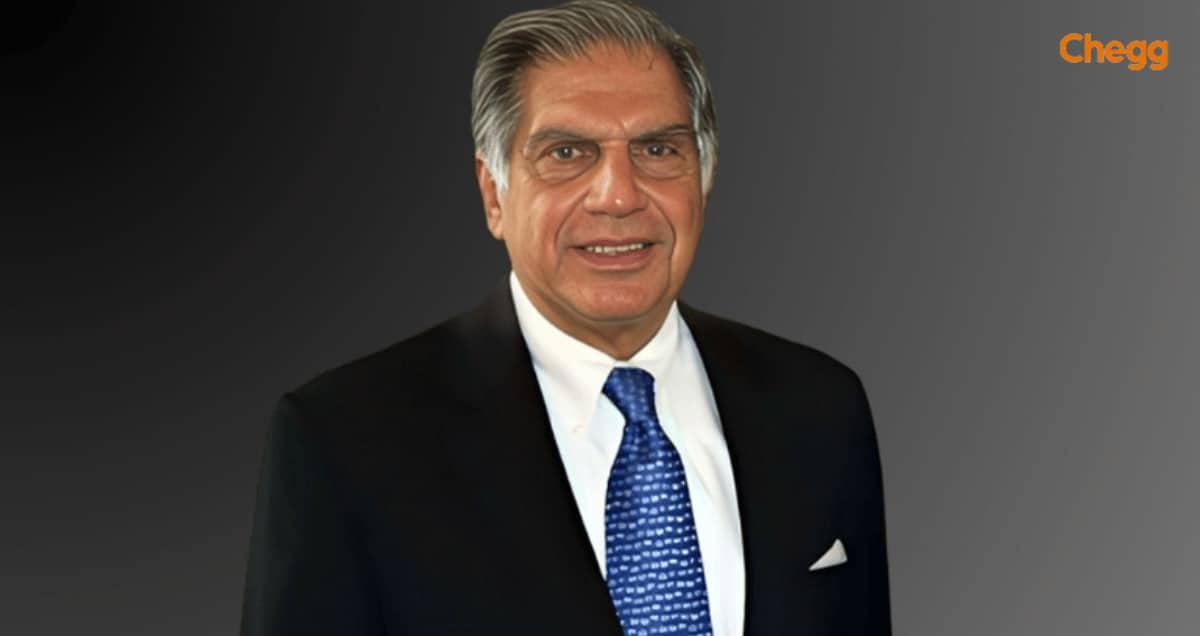All You Need to Know to Crack Your Group Discussion Interview
Cracking a group discussion requires many skills, which broadly include good communication skills, and a good grasp of current affairs are not the only things necessary to succeed in a group discussion. There are still a few other things to consider.

Cracking a group discussion requires many skills, which broadly include good communication skills, and a good grasp of current affairs are not the only things necessary to succeed in a group discussion. There are still a few other things to consider. Learn exactly what is group discussion and some tips to crack this round in an interview.
What Is a Group Discussion?
Let’s define group discussion as an interview round that allows you to present information and interact with your peers. It’s one of the most common types of interview rounds and one of the most important ones. The goal is to demonstrate how well you can answer questions and engage in conversation, so it’s essential to consider how you’ll approach the round.
We can describe or explain group discussion as a part of the interview process where the candidate is asked to talk about something before a group. The interviewer sits behind a podium and asks questions or comments from the candidates. The candidates then have to answer in turns and explain their views, opinions, or experience on the topic.
Recruiters use the group discussion round to test a candidate’s leadership and communication skills, test their knowledge on the topic, etc. Thus, it is important to learn what is group discussion in communication to secure a spot in the next round. These discussions allow candidates to interact and learn how they work together.
Mock group discussions are also a great way to prepare for interviews and to learn what is group discussion. They are an excellent way to get feedback on your performance and help you practice answering questions in real-life scenarios. A group discussion happens between multiple candidates for a position, and each individual has the chance to answer questions and share their views on a topic — which can be technical and related to the field, politics, the weather, or even abstract topics like emotions.
What are the Different Types of Group Discussion?
Here are some different types of group discussions:
1. Topical Group Discussions
The topic of the group discussion is decided by the interviewer, who may have a list of questions in mind. The interviewers will ask questions to see if you are able to work as a team and communicate well with other people.
You should be able to express your views clearly and logically while explaining your stand on the issue. You need to make use of your verbal and non-verbal skills for effective communication.
The candidate needs to be well prepared for this type of interview and should carefully think about the topic so that they can give an intelligent answer in front of two or more people. The best way to prepare for this kind of group discussion is by reading newspapers regularly to get ideas related to broad and currently relevant topics.
For example, if your topic is Jobs and Startups, you should cover the core aspects. Organize everything you know in an orderly manner in order to present it in a clear and concise manner.
2. Case Studies
The purpose of case study interviews is to resolve a business problem logically, rather than merely discussing it. It is intended to provide insight into how you might perform on the job by putting you in a situation that simulates the work you will be doing. You may receive the case verbally or in writing. You will then be asked to explain your assumptions, strategies, and steps within a certain time frame in order to solve the case.
Case studies allow you to demonstrate your analytical skills and your ability to solve problems in real-time. You may also be assessed by the recruiter on your ability to remain calm in stressful situations.
For instance, if you are attending an interview for the banking sector, you might want to learn more about the role and responsibilities within the company, as well as any unique challenges that the role faces on a day-to-day basis.
3. Abstract Group Discussions
It is up to the candidates to interpret the abstract topic. The most common topics for abstract group discussions are single sentences, phrases, idioms, and quotations. Inferences may be drawn from the statement/word, hidden messages searched for, and inferences made based on the information given.
The candidates’ confidence, their ability to quickly provide an example, and their ability to use multiple points of view during the discussion are all factors they use to judge them. Be honest about how you think about the topic without panicking or getting disheartened.
It requires confidence and clarity to present one’s perspective and steer the conversation. Furthermore, abstract topics show off one’s creativity and facilitate the interview process by attracting recruiters’ attention.
Here are some examples of Abstract Group Discussions topics:
- Rolling stone gathers no moss.
- Consistency is the key.
4. Conceptual topics
The conceptual topics group discussion is a format where you are required to discuss a topic related to your field of study. You have to prepare a list of questions you would like to ask. The interviewers will choose the best questions for you, which will be asked in an open-ended manner.
In this kind of interview, you should never forget that it is not just about answering the questions but also listening to the answers of other candidates and giving your opinion.
As an example of a conceptual topic, there is ‘Handling a conflict in the team’.
Advantages of Group Discussion
The interviewer can gain a better understanding of candidates like you through group discussions. It allows you to showcase your potential, personality, and preferences. You can also show how you interact with others, giving an idea of your leadership style and skills.
Here are some advantages of group discussion:
1. Group Discussion Interview is more suitable for you to feel uncomfortable with the individual interview.
2. It helps you to interact with many people at a time, which makes you understand various aspects of the topic and competition.
3. It helps you to build a rapport with the interviewer, so you can put your best foot forward during the interview and make a good impression on the interviewer.
4. It saves time because all participants will be interviewed at once instead of conducting individual interviews with each participant separately.
5. It helps to showcase your leadership and communication skills.
Disadvantages of Group Discussion
There are several disadvantages to the group discussion interview. Here are five of them:
1. It is not possible to get a representative sample of candidates.
2. The interviewer has no control over how the candidates interact with each other.
3. A good candidate may be frustrated by others’ responses, so they may not be as forthcoming as they might be in other interviews.
4. There is less incentive for the candidate to put forth their best effort because there is no one to impress but the group as a whole.
5. In some cases, the platform can be overwhelming, as some candidates may be able to bulldoze their way through the rounds, while others may have missed their chance.
Skills Evaluated in a Group Interview
The group interview is an essential part of the job interview process.
1. Knowledge
You are asked questions about the job description, company culture, and goals of the position. You will be evaluated on your ability to answer these questions with clarity and detail. The skills and knowledge you demonstrate in your group interview will be reviewed by other people who may not know you well but also have their own opinions about what makes a good employee.
2. Creativity
In addition to answering questions about the job description, company culture, and goals of the position, you will be asked how you would improve it. Your creativity can help others see ways they could make improvements on their jobs or within their departments as well.
3. Tone
The tone of the interview is a very important factor that can affect how the candidate perceives you and your company. You should be friendly and professional, but also personable. The best way to do this is through good eye contact and a smile.
4. Body Language
Body language is a big part of your interview. You want to ensure that you’re showing them that you’re interested in the job and that you’re someone they can trust. Make eye contact when speaking with them and use gestures when possible. It’s not just what you say; it’s how you say it and how you present your ideas.
5. Listening Skills
The ability to listen to what is being said and what is being asked for. This can be done by asking questions about what has been said and listening for a response. In addition, asking questions allows the interviewer to determine if they understand what was said or if they missed something important.
6. Leadership
Many leadership skills need to be evaluated in a group interview: team building, conflict resolution, goal setting, and problem-solving. Each of these requires different types of leadership skills depending on which situation it will be used in. You can further explain or sum up the points in the group discussion.
7. Initiative
The initiative is the ability to begin and take action. This includes leadership, project management, problem-solving, critical thinking, and decision-making skills. These are some essential skills you will need to have during your job search process. Be the first to start the group discussion or be the one that concludes the group discussion.
You can also read our blog on Most Common Interview Questions for Freshers.
Preparation Before the Discussion
Preparing for a group discussion interview can be one of the hardest things about getting a job. The process is similar to preparing for a consultation on your own, with one big difference: you must prepare before your potential team. Stay up to date with current affairs and common topics.
Have a Clear Opinion
The first thing you need to do when you are about to go for a group discussion is to have a clear opinion about the topic. This is because your interviewers will ask you questions that will help them understand your opinions. Therefore, you must practice your answers before going for the GD so that you can be prepared for any questions thrown at you by your interviewers.
Think Before Speaking
You don’t want to become flustered; so, you must pause for a moment before answering. This will give you time to collect your thoughts and prepare for what might come next.
It’s essential to think before you speak during a group discussion. You don’t want to say something that will be remembered for the wrong reasons, or worse, have people think you’re just being rude.
Listen Before Speaking
Listening is a great way to show interest in the job. But it’s also vital to stand out from the crowd.
If you can listen carefully, people will be more likely to talk with you and get to know you better. This also helps you learn more about the company and its culture, which can help later in the interview process.
Be Enthusiastic But Not Aggressive
You want to come across as genuine but not over the top. It would be best if you did not make any personal attacks or try to dominate the discussion. Instead, focus on answering the questions and showing that you have an interest in what is going on. Show enthusiasm but do not be too loud or aggressive.
Focus on What You Know
Don’t worry too much about telling the interviewer what they already know. Instead, focus on topics that interest you or will help you demonstrate specific skills or knowledge. For example, if you’re applying for a job as an engineer at a company that makes medical equipment, focus on why medical equipment and engineering are related and how this experience would make you an excellent candidate.
Respect Fellow Speakers
It would be best if you kept in mind that GD recruiters are searching for hardworking individuals. Be clear in your points, but avoid interrupting others. Negative phrases such as “You’re wrong” should also be avoided.
In addition to showing that you are a team player, you highlight your upbeat personality by using mild disagreements like “Add another perspective after that”.
Stay Up-To-Date
When you’re in distress, an internet browser can be your best friend at hand with recommendations on the best interview preparation sites. When you do regular online research, you will find an extensive, company-specific database that contains actual interview experiences shared by honest interviewees. You will be more likely to be selected if you use such materials.
Stay on Topic
Take the initiative to bring the debate back on track if the group diverges from the topic or goal. There is no doubt that you will be noticed then. Keeping the discussion focused and leading the discussion shows your leadership skills. At the end of the discussion, make sure the group members know what you will be concluding with. The importance of sticking to the topic cannot be overstated.
You can also read our blog on Online Interview Tips and Tricks.
Takeaways
As you can see, there are numerous tips and tricks you can adopt to help you better get through the group discussion round. But most of these come with a caveat: there is no one-size-fits-all approach to cracking the group discussion round. What matters is that you practice as much as possible and take an active interest in what you read, write, and speak. Try these tips in your next group discussion round to see how well they work for you!
Frequently Asked Questions
Q1. What do you mean by a group discussion?
Ans. We can define group discussion as a way of presenting information to the interviewee and asking questions to clarify or elaborate on what has been presented. Group discussion definition can be used in various settings, such as job interviews, group training sessions and sales presentations.
Q2. What are the 3 types of group discussion?
Ans. The three types of group discussion are:
Participatory discussion: The members share their ideas and opinions on a particular topic.
Task discussion: The members discuss the problem they are supposed to solve as a team.
Problem-solving discussion: This type of group discussion is based on a specific problem that needs to be solved by the group.
Q3. What is the group discussion purpose?
Ans. Group discussion is a process of discussion in which each participant has an opportunity to express their views in front of a set of people, and the views of other participants are also expressed. Group discussions help in developing a mutual understanding among members of the group.
The group discussion round of an interview process may help a recruiter understand how a candidate might interact and react in a team so as to analyze if they would be a right fit for the organization or the job role.
Q4. What is the best way to start a group discussion?
Ans. The best way to start a group discussion is to make sure you have everyone’s attention. You can do this by using the keywords that will get people’s attention or body language to show that you are interested in what they have to say.
You must listen and speak if you are participating in a group discussion. This means that when someone else is saying, you should not interrupt them. If they pause while they are talking, it is fine for you to pause too so that your speech does not drown out theirs.
The post All You Need to Know to Crack Your Group Discussion Interview appeared first on Chegg India.


















/cdn.vox-cdn.com/uploads/chorus_asset/file/25115065/DCD_Avishai_Abrahami.jpg)







